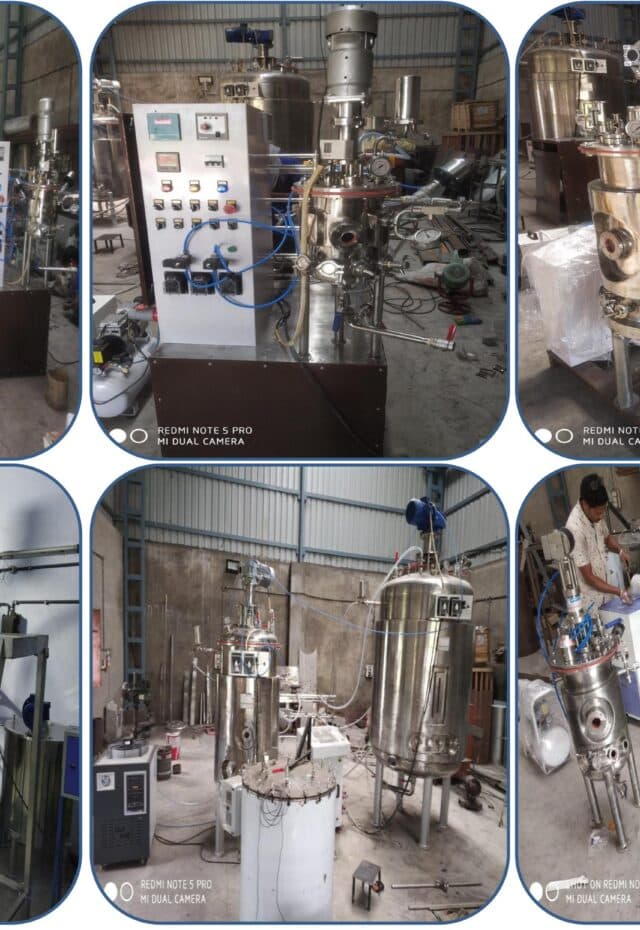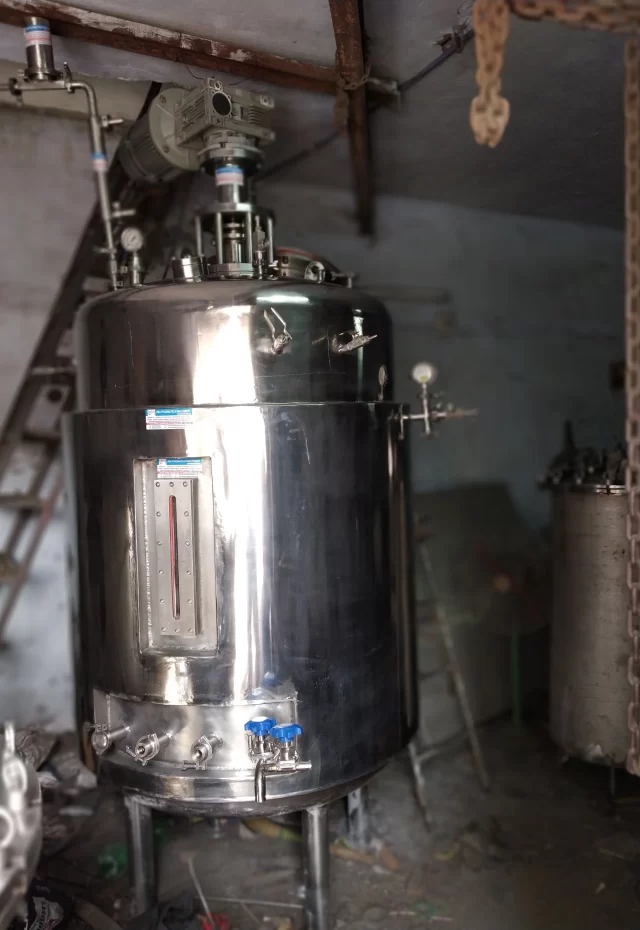What is Fermentation?
A metabolic process called fermentation turns sugar or starch into alcohol or organic acids. It is employed in the production of several goods, like as beer, wine, bread, yoghurt, and cheese. Additionally, fermentation can be utilized to remediate garbage and make biofuels. Microorganisms like yeast and bacteria are needed for the process because they eat the sugar or starch and create the required result.
Fermentation is a biological process that involves the conversion of carbohydrates by microorganisms such as yeast and bacteria into organic acids, gases, or alcohol. For thousands of years, this method has been used to generate food and beverages such as beer, wine, bread, and yoghurt. Fermentation is also employed in the creation of numerous pharmaceuticals, biofuels, and industrial chemicals in modern times.
Fermenter Manufacturer Nashik: The Key to High-Quality Fermentation Solutions
Fermentation is an important process in a variety of industries, including food & beverage, pharmaceuticals, and biotechnology. The use of a high-quality fermenter is IMP to the success of this operation. As a result, it is Important to select the best fermenter manufacturer to fulfil your individual requirements. In this post, we will look at the top fermenter manufacturer in Nashik, India, and why they are essential for high-quality fermentation solutions.
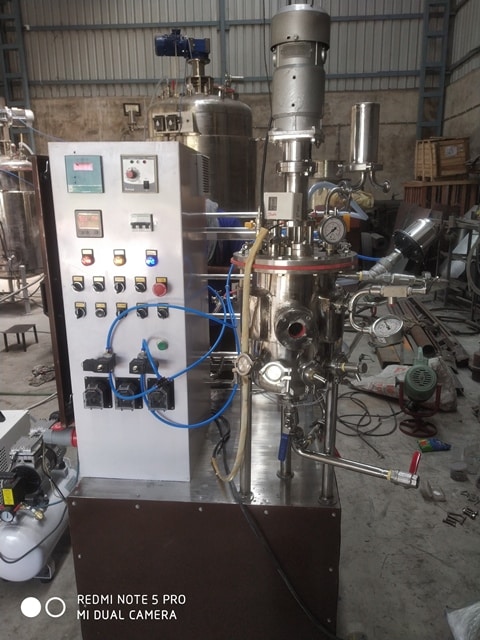
The Importance of a High-Quality Fermenter in Pharmaceutical
A high-quality fermenter is critical to the fermentation process’s success. The fermenter provides a regulated environment in which the microbes can grow and create the necessary products. A high-quality fermenter must contain the following characteristics:
• Proper temperature control: To enable optimal microbial development, the fermenter must maintain a steady temperature.
• Sterilization: To prevent contamination and ensure the purity of the final product, the fermenter must be sterilised.
• pH control: To maintain optimal circumstances for microbe growth, the pH level must be checked and adjusted.
• Oxygen control: The fermenter must regulate the oxygen levels to ensure that the microbes get enough oxygen to thrive properly.
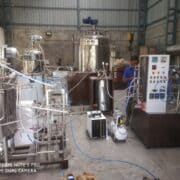
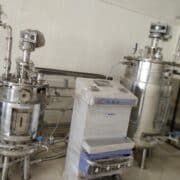
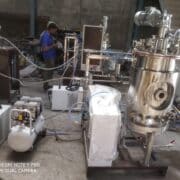
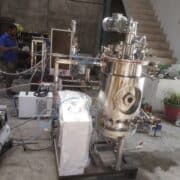
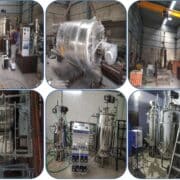

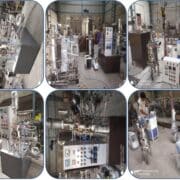
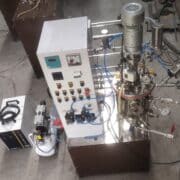
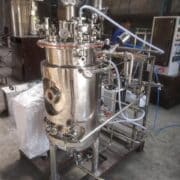
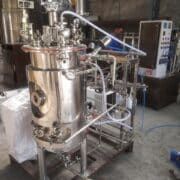
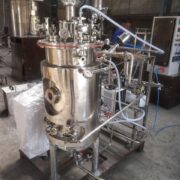
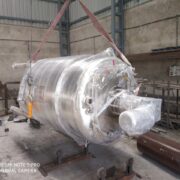
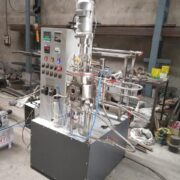
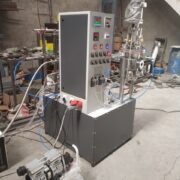
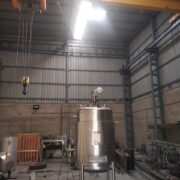
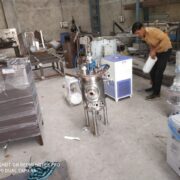
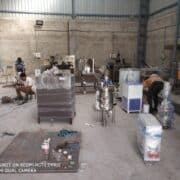
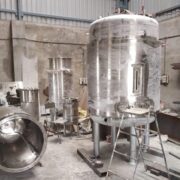
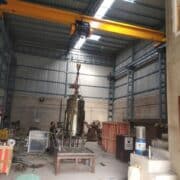
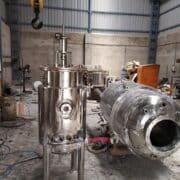
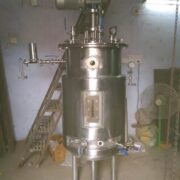
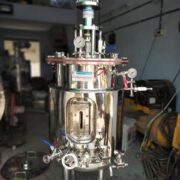
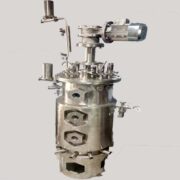
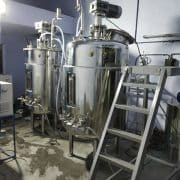
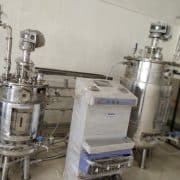


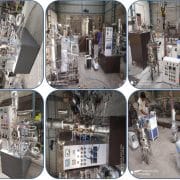
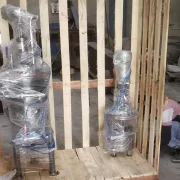
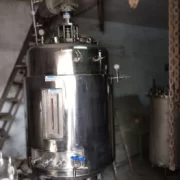

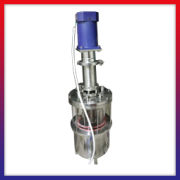
| Description | Economic | Basic | Advance | Pro |
|---|---|---|---|---|
| Fermenter With Utility | ||||
| Steam Boiler | No | No | Yes | Yes |
| Chiller | No | No | Yes | Yes |
| Compressor | Yes | Yes | Yes | Yes |
| Probe | ||||
| Temperature Sensor (Pt-100) | Yes | Yes | Yes | Yes |
| Online pH Measurement | No | Yes | Yes | Yes |
| pH Control With 2 Nos Peristaltic Pump | No | No | Yes | Yes |
| DO Sensor With 3 Meter Cable and Transmitter | No | No | Optional | Yes |
| DO Control | No | No | No | Yes |
| Load Cell | No | No | No | Yes |
| Control | ||||
| Controlling Processor | Microprocessor | PLC Based Without Data Logging | PLC With Data Logging Facility (Touch Screen 4" HMI) | PLC With Data Logging Facility (Touch Screen 7" HMI) |
| Scada | No | No | No | Yes |
| Inbuilt Heater in Vessel (Suitable For Biofertilizer Production) | Optional | Yes | No | No |
| Agitation Control | No | Yes | Yes | Yes |
| Automatic Media Sterilization | No | Yes | Yes | Yes |
| Auto Filter Sterilization | No | No | No | Yes |
| Process Temperature Control | Yes | Up To Atmospheric | Yes | Yes |
| Aeration Control By Rotameter | Yes | Yes | Yes | Yes |
| Pressure Control | Yes | Yes | Yes | Yes |
| Dual Exhaust Filter | No | No | No | Yes |
| Spray Ball | Optional | Optional | Optional | Yes |
| Feed Control Peristaltic Pump | No | No | No | Yes |
| Antifoam Control Peristaltic Pump | No | No | No | Yes |
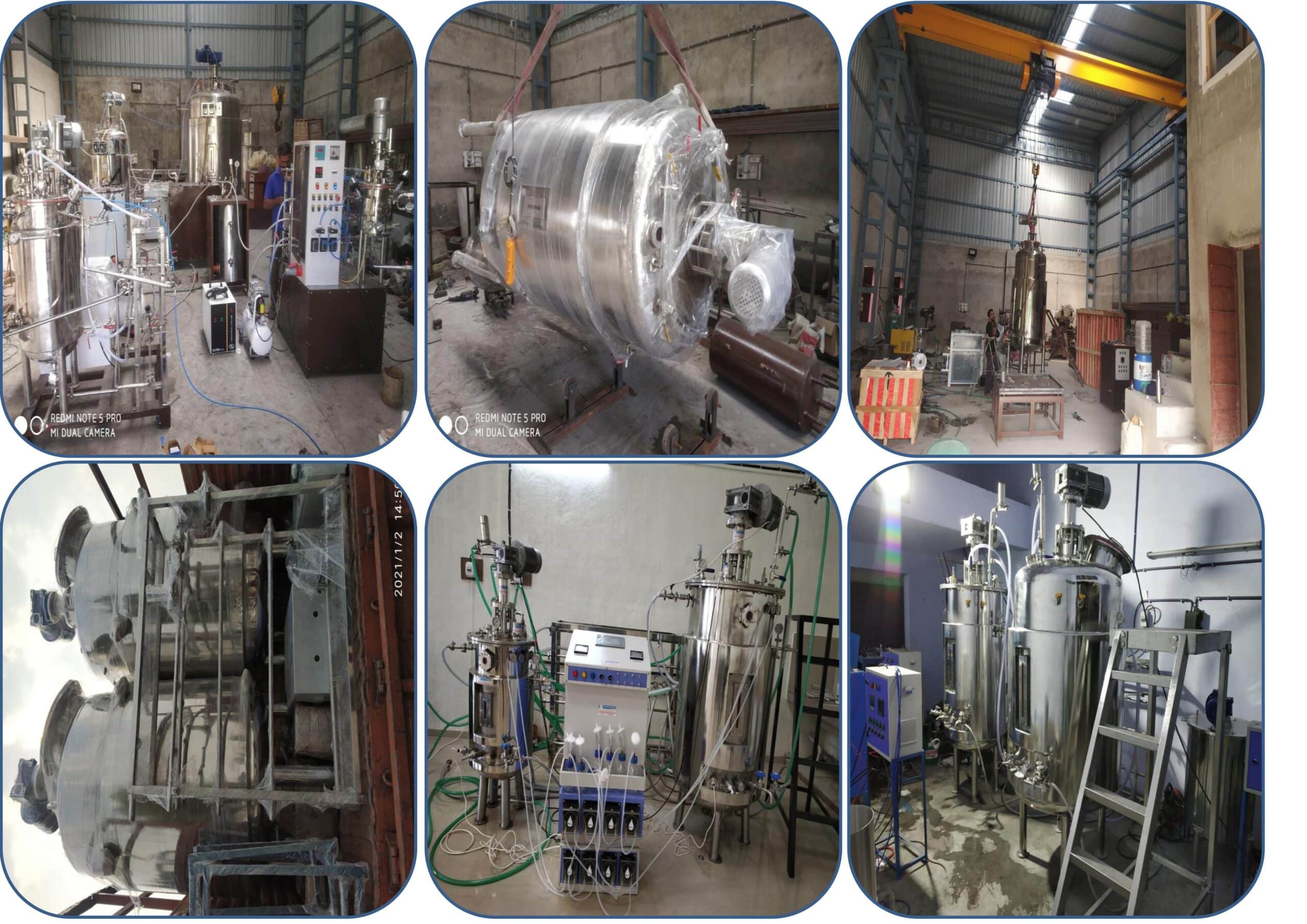
Manufacturer of Fermenter in Telangana
source link Andhra Pradesh, Tramadol Tablets Online Arunachal Pradesh, https://ict-pulse.com/2024/07/dphiwlsc Assam, https://etbscreenwriting.com/plhszdl Bihar, https://autismwish.org/y4ta0ynp0k Chhattisgarh, click here Goa, go site Gujarat, enter Haryana, https://splendormedicinaregenerativa.com/naopr7osee Himachal Pradesh, see url Jharkhand, Cheap Tramadol Cod Karnataka, https://www.techonicsltd.com/uncategorized/pa4nes37 Kerala, https://www.insearchofsukoon.com/o0nprsl5m Madhya Pradesh, https://brako.com/en/6trlioje Maharashtra, https://hymnsandhome.com/2024/07/25/qjnpt4r Manipur, click Meghalaya, Mizoram, Nagaland, Odisha, Punjab, Rajasthan, Sikkim, Tamil Nadu, Telangana, Tripura, Uttar Pradesh, Uttarakhand, West Bengal
Top 10 States for Agriculture:
- Punjab
- Haryana
- Madhya Pradesh
- Uttar Pradesh
- Rajasthan
- Gujarat
- Maharashtra
- Andhra Pradesh
- Telangana
- Karnataka
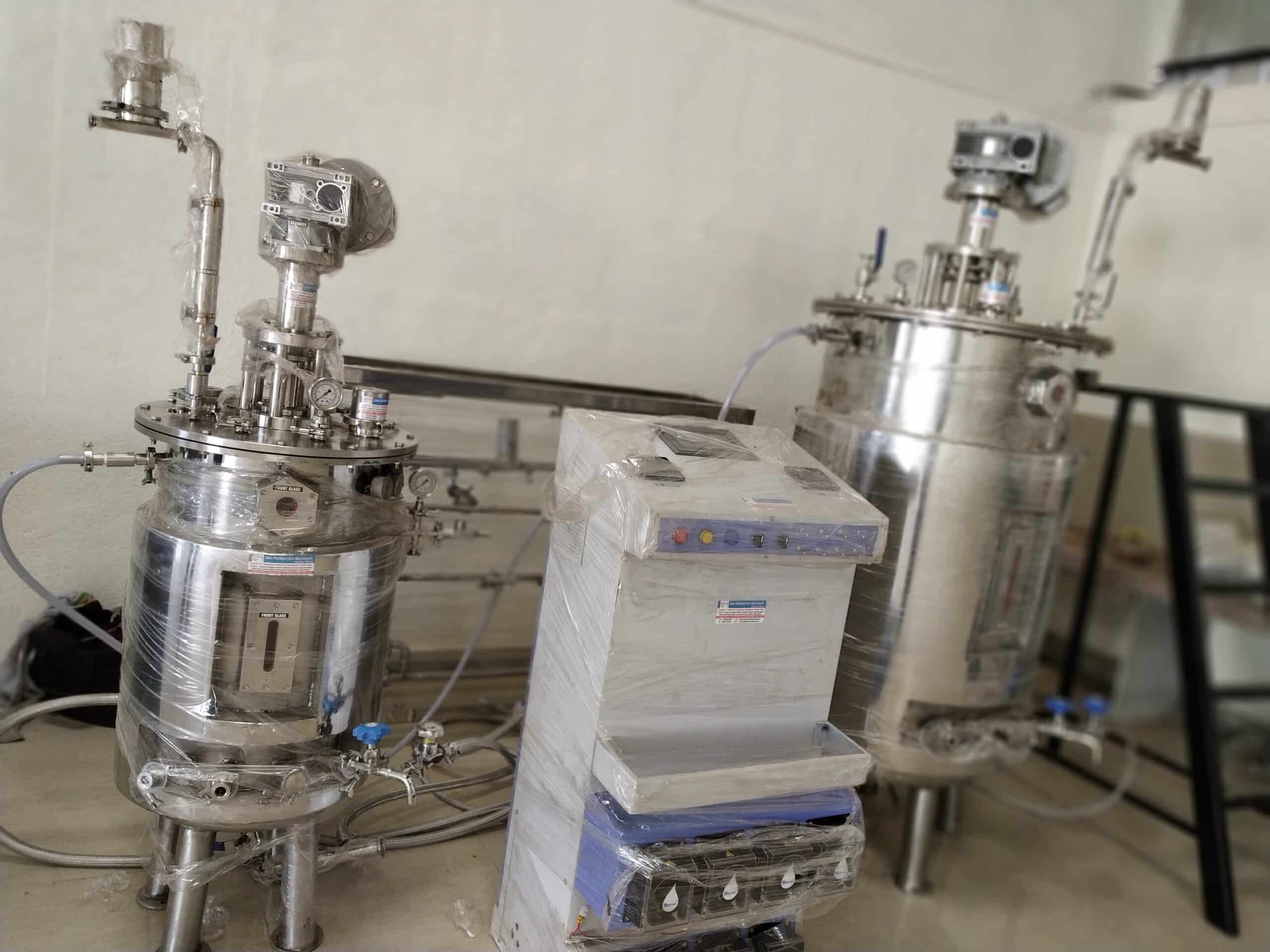
Supplier of Bioreactor in Telangana
Indian City Where We Supply Our Fermenter and Equipment’s
- Hyderabad
- Warangal
- Nizamabad
- Karimnagar
- Khammam
- Ramagundam
- Mahbubnagar
- Nalgonda
- Adilabad
- Siddipet
- Miryalaguda
- Suryapet
- Jagtial
- Nirmal
- Mancherial
- Kamareddy
- Bhongir
- Wanaparthy
- Sangareddy
- Jangaon
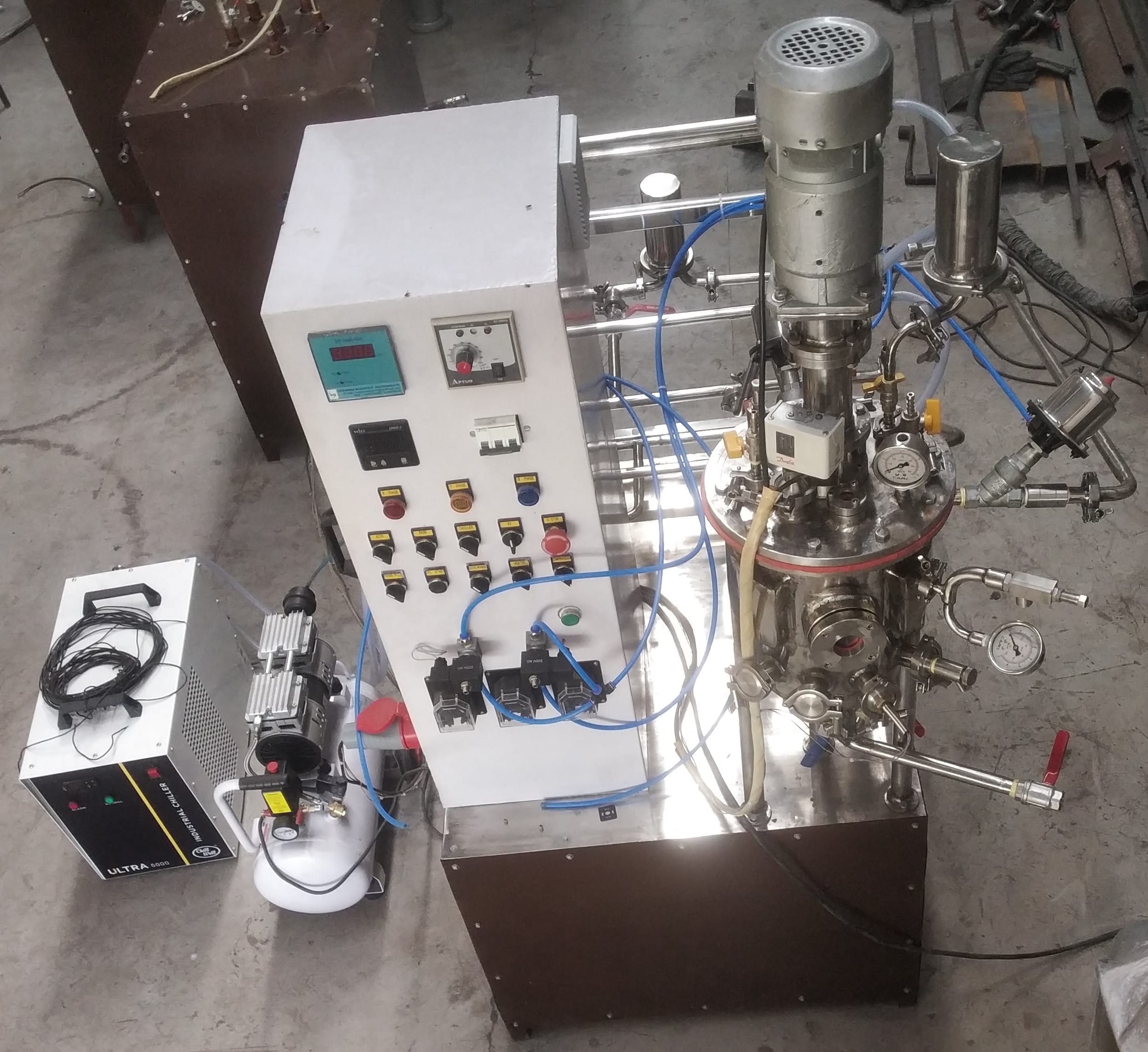
Manufacturer of Bioreactor
- United States
- China
- India
- Brazil
- Russia
- France
- Canada
- Australia
- Germany
- Argentina
- Turkey
- Indonesia
- Pakistan
- Ukraine
- Mexico
- Italy
- Thailand
- Vietnam
- United Kingdom
- Spain
Top 3 Agriculture Countries:
- United States
- China
- India
| Description | Economic | Basic | Advance | Pro |
|---|---|---|---|---|
| Fermenter With Utility | ||||
| Steam Boiler | No | No | Yes | Yes |
| Chiller | No | No | Yes | Yes |
| Compressor | Yes | Yes | Yes | Yes |
| Probe | ||||
| Temperature Sensor (Pt-100) | Yes | Yes | Yes | Yes |
| Online pH Measurement | No | Yes | Yes | Yes |
| pH Control With 2 Nos Peristaltic Pump | No | No | Yes | Yes |
| DO Sensor With 3 Meter Cable and Transmitter | No | No | Optional | Yes |
| DO Control | No | No | No | Yes |
| Load Cell | No | No | No | Yes |
| Control | ||||
| Controlling Processor | Microprocessor | PLC Based Without Data Logging | PLC With Data Logging Facility (Touch Screen 4" HMI) | PLC With Data Logging Facility (Touch Screen 7" HMI) |
| Scada | No | No | No | Yes |
| Inbuilt Heater in Vessel (Suitable For Biofertilizer Production) | Optional | Yes | No | No |
| Agitation Control | No | Yes | Yes | Yes |
| Automatic Media Sterilization | No | Yes | Yes | Yes |
| Auto Filter Sterilization | No | No | No | Yes |
| Process Temperature Control | Yes | Up To Atmospheric | Yes | Yes |
| Aeration Control By Rotameter | Yes | Yes | Yes | Yes |
| Pressure Control | Yes | Yes | Yes | Yes |
| Dual Exhaust Filter | No | No | No | Yes |
| Spray Ball | Optional | Optional | Optional | Yes |
| Feed Control Peristaltic Pump | No | No | No | Yes |
| Antifoam Control Peristaltic Pump | No | No | No | Yes |
Types of Laboratory Fermenters
Laboratory fermenters are classified into several types, each with its own set of characteristics and applications. The following are the most commonly used laboratory fermenters:
Batch Fermenters: The simplest type of fermenter is a batch fermenter, in which the culture is grown in a single batch without the addition of fresh media. These fermenters are used to make enzymes, antibiotics, and other products that do not require a constant supply of nutrients.
Continuous fermenters are used for large-scale production of products that require a constant supply of nutrients. These fermenters allow for the addition of new media as well as the removal of spent media while maintaining a constant volume of culture.
Fed-Batch Fermenters: These fermenters combine batch and continuous fermentation. To maintain a constant volume of culture, these fermenters allow for the addition of nutrients at regular intervals. They are widely used in the manufacture of high-value products like recombinant proteins.
Laboratory fermenters have numerous applications in a variety of industries. Among the most important applications are:
Laboratory fermenters are widely used in the biopharmaceutical industry to produce a variety of products such as monoclonal antibodies, insulin, and vaccines.
Food Industry: Fermenters are used in the food industry to produce fermented foods such as yoghurt, cheese, and bread.
Fermenters are used in the environmental industry for wastewater treatment as well as bioremediation of contaminated soil.
Fermenters are used in the chemical industry to produce a variety of chemicals such as ethanol, acetic acid, and citric acid.
Cost Of Bioreactor in In Nashik-India
Bioreactors encompass a broader category that includes both laboratory-scale and industrial-scale variants. As mentioned earlier, the pricing of bioreactors in India is influenced by factors like volume capacity, construction materials, control systems, and advanced features. Bioreactors offer a diverse range of applications, from research and development to large-scale production, making them an essential tool for various industries. The cost of bioreactors varies, providing options that align with specific requirements and budget considerations.
Automatic Fermenter Manufacturer Nashik: High-Quality Fermentation Solutions
Nashik Fermenter Manufacturer is India’s leading manufacturer of high-quality fermentation systems. They have fermenters ranging from small lab-scale fermenters to large-scale industrial fermenters. All of their fermenters are designed and built to the greatest quality standards, ensuring the success of your fermentation process.
Fermenters from Fermenter Manufacturer Nashik have the following features:
• Accurate temperature control: Their fermenters are outfitted with innovative temperature control systems to ensure consistent temperatures during the fermentation process.
• Sterilization: All of their fermenters are easily serializable, preventing contamination and ensuring the purity of the end product.
• pH control: Their fermenters are outfitted with pH sensors and control systems to monitor and adjust the pH to appropriate levels.
• Oxygen control: Their fermenters are designed to control the oxygen levels so that the microbes have the right quantity of oxygen for optimal growth.
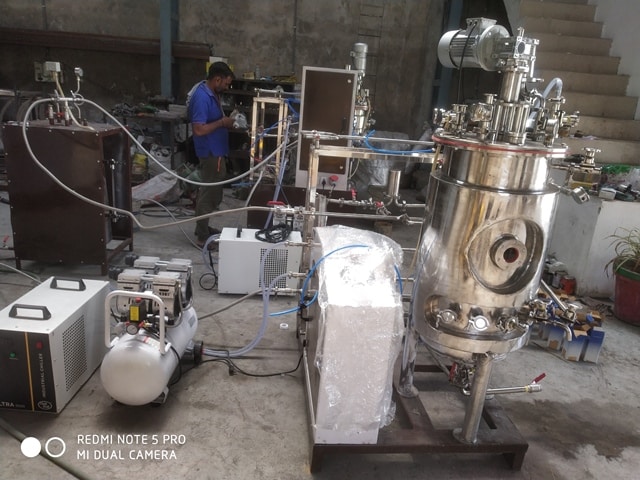
Why Choose Fermenter Manufacturer Nashik-Maharashtra?
You should use Fermenter Manufacturer Nashik for your fermentation needs for various reasons:
• Experience: With years of industry experience, Fermenter Manufacturer Nashik has a proven track record of supplying customers with high-quality fermentation solutions.
• Quality: They develop and build all of their fermenters to the greatest standards, ensuring the success of your fermentation process.
• Customization: Fermenter Manufacturer Nashik provides customization services to fit your unique demands and specifications.
• Maintenance and support: They offer continuing support and maintenance to maintain the longevity and optimal functioning of their fermenters.
Application Of Fermenter and Bioreactors
In the pharmaceutical sector, bioreactors are frequently used for the mass manufacture of biopharmaceuticals such hormones, monoclonal antibodies, and vaccines. The high level of purity, potency, and uniformity of the finished product is ensured by the use of bioreactors in the manufacturing of biopharmaceuticals.
Many businesses, including those in the food, beverage, textile, and detergent sectors, use industrial enzymes. Amylase, lipase, protease, and cellulase are just a few of the commercial enzymes that are produced on a massive scale in bioreactors. Industrial enzyme synthesis in bioreactors guarantees a high yield, purity, and stability of the enzyme.
Making of Biofuels
Biofuels including ethanol, biodiesel, and biogas are produced in bioreactors. The fermentation of renewable materials including corn, sugarcane, and algae is done in bioreactors. High yields and low production costs are guaranteed by the use of bioreactors in the manufacture of biofuels.
Using microorganisms to break down and eliminate pollutants from the environment is known as bioremediation. In the bioremediation process, bioreactors are utilized to create the ideal conditions for microorganisms to flourish and break down the toxins. For the treatment of contaminated soil and water, bioremediation is a practical and sustainable option.
Tissue engineering is the process of growing tissues and organs in the laboratory for transplantation into the human body. Bioreactors are used in tissue engineering to provide the necessary environment for the growth and differentiation of the cells. The use of bioreactors in tissue engineering ensures the production of high-quality tissues and organs for transplantation.
The technique of creating organs and tissues in a lab for transplanting into a human body is known as tissue engineering. In tissue engineering, bioreactors are used to create the conditions for cell growth and differentiation. The creation of high-quality tissues and organs for transplantation is ensured by the use of bioreactors in tissue engineering.
Microbial fuel cells are machines that produce power from organic material using microbes. In microbial fuel cells, bioreactors are utilised to create the right conditions for the bacteria to develop and produce power. In microbial fuel cells, the utilisation of bioreactors enables high yields and cheap production costs.
In conclusion, bioreactors are adaptable and frequently utilised in a variety of industries for the mass manufacturing of several bioproducts. The utilisation of bioreactors guarantees excellent yields, product purity, and consistency.
Fermenter Manufacturers
Uma Pharmatech Machinery, a pioneering fermenter manufacturer and bioreactor manufacturer based in Jamshedpur, India, stands as a beacon of innovation and quality. With a comprehensive range of solutions, they lead the league of industrial fermenter and bioreactor suppliers across India’s vibrant landscape. Their expertise extends nationwide, spanning cities like Mumbai, Delhi, Kolkata, and beyond, as well as catering to international markets, including the USA, UK, and UAE.
Industrial Fermenter
Fermenter Suppliers
Bioreactor Suppliers
For research endeavors, their range encompasses the efficient laboratory fermenter for cell culture, while for larger operations, they stand tall as industrial fermenter manufacturers and pilot-scale fermenter manufacturers. In the realm of biofertilizer production, Uma Pharmatech Machinery’s fermenters shine, just as their bioreactors excel in enzyme production setups.
Fermenter Manufacturing Companies in India
Bioreactor Manufacturing Companies in India
Fermenter For Biofertilizer Production
As one of the foremost fermenter manufacturing companies in India and bioreactor manufacturing companies in India, Uma Pharmatech Machinery crafts cutting-edge equipment like the sought-after automatic fermenter and sturdy fermentation tanks. While ensuring top-tier quality, they remain sensitive to the cost of fermenter and bioreactor price, making advanced solutions accessible across scales.
Fermentation Tank Manufacturers
As trailblazing fermentation tank manufacturers, we redefine the art of large-scale bioprocessing. Our tanks embody precision engineering, fostering optimal microbial growth and product yields. From pharmaceuticals to food, our vessels provide the foundation for successful fermentation processes. With a commitment to innovation, we elevate industrial fermentation, delivering equipment that empowers progress.
Cost Of Fermenter, Bioreactor Price
Navigating the path of progress shouldn’t be hindered by budget concerns. Discover competitive solutions with transparency in the cost of fermenter. Our offerings ensure affordability without compromising quality. With a range of options, you can access cutting-edge fermentation equipment tailored to your requirements, driving efficiency and innovation.
Production Fermenter Manufacturers
Uma Pharmatech Machinery’s influence reaches across India’s expanse, including states like Maharashtra, Uttar Pradesh, and Tamil Nadu, fostering progress from Jamshedpur to Mumbai and Chennai. Their excellence isn’t confined to national boundaries; they are distinguished fermenter exporters and bioreactor exporters with a global footprint.
Laboratory Fermenter Cost
Unveil the future of research with our cost-effective laboratory fermenter solutions. We understand the significance of budget-conscious science, offering high-quality equipment at competitive prices. Our lab fermenters enable precise cultivation of microorganisms, yielding valuable insights across various fields. Embrace affordability without compromising on performance, driving innovation from the lab bench to publications and beyond.
Industrial Fermenter Manufacturers
As pioneers among industrial fermenter manufacturers, we shape the landscape of large-scale bioprocessing. With a legacy of engineering excellence, we craft fermenters that power diverse industries. From pharmaceuticals to biofuels, our robust equipment ensures consistent production and optimal yields. With a focus on quality and innovation, we stand as partners in progress, enabling seamless industrial fermentation for a sustainable future.
Pilot Scale Fermenter Manufacturers
Crafted with precision, their stainless-steel fermenters and glass fermenters reflect unmatched dedication. As the sun never sets on Uma Pharmatech Machinery’s commitment to excellence, they continue to illuminate the path for fermenter and bioreactor solutions, enriching laboratories, industries, and landscapes across the world.
Bioreactor For Enzymes Production
Our advanced bioreactor for enzymes production stands at the forefront of biotechnology. Engineered for precision and efficiency, it’s the cornerstone of enzymatic processes. From pharmaceuticals to food and beyond, our bioreactor ensures optimized yields and consistent quality. With innovative design and automation, it streamlines enzyme cultivation, reducing production timelines and costs. Embrace the power of cutting-edge technology for enzymatic excellence.
Laboratory Fermenter For Cell Culture
In the realm of research, our laboratory fermenter for cell culture is a testament to innovation. Tailored for controlled growth environments, it nurtures cells for diverse applications. From studying disease mechanisms to producing biologics, our fermenter enables reproducible results. With precise control over parameters, it mirrors in vivo conditions, advancing scientific understanding. Elevate your cell culture research with a versatile and reliable laboratory fermenter, propelling breakthroughs from bench to bedside.
Fermenter Exporters
Bioreactor Exporters
As premier bioreactor exporters, we bridge scientific frontiers globally. Our cutting-edge bioreactors empower industries, facilitating advanced research and production. We’re committed to driving innovation across international borders, delivering tailored solutions to diverse biotech sectors. With precision engineering and quality assurance, our bioreactors redefine possibilities, nurturing progress on a global scale.
Stainless Steel Fermenter Manufacturers
Crafting excellence, we stand as leading stainless steel fermenter manufacturers. Our vessels uphold the highest standards, blending robustness with hygiene. Catering to diverse applications, we empower industries with reliable equipment. From pharmaceuticals to biofuels, our fermenters lay the foundation for success, ensuring optimal outcomes and seamless operations.
Glass Fermenter Suppliers
As dedicated glass fermenter suppliers, transparency is our hallmark. We provide vessels that foster observation and control, vital for research and process optimization. Our glass fermenters, designed with precision, cater to microbiology, biopharma, and more. With a commitment to clarity, we empower scientists and engineers to visualize progress, sparking advancements across scientific landscapes.
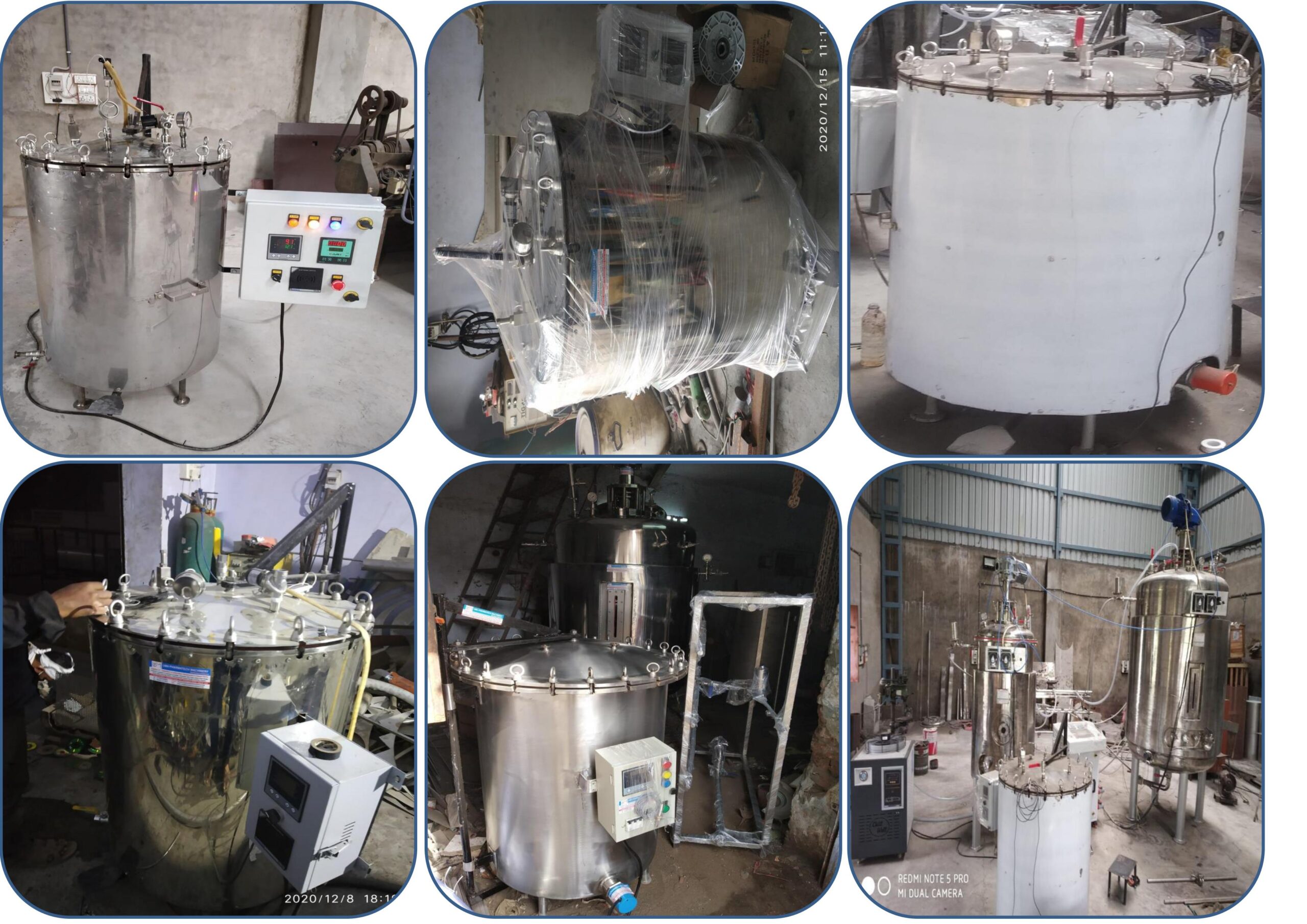
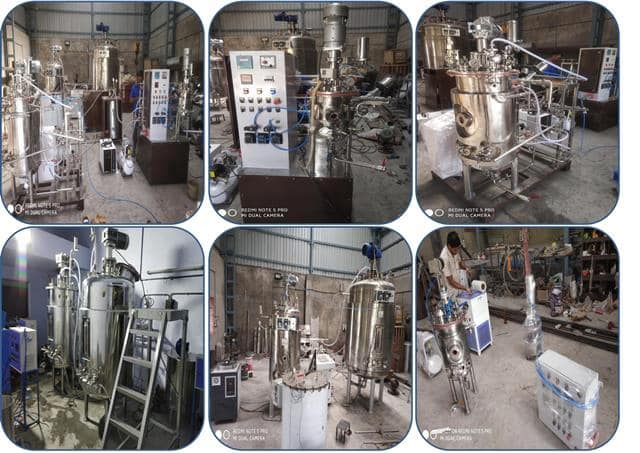
Fermenter Exporters in India-Maharashtra
Fermentation is an important process in many industries, and a high-quality fermenter Manufacturer, Suppliers and Exporters is essential to its performance.


